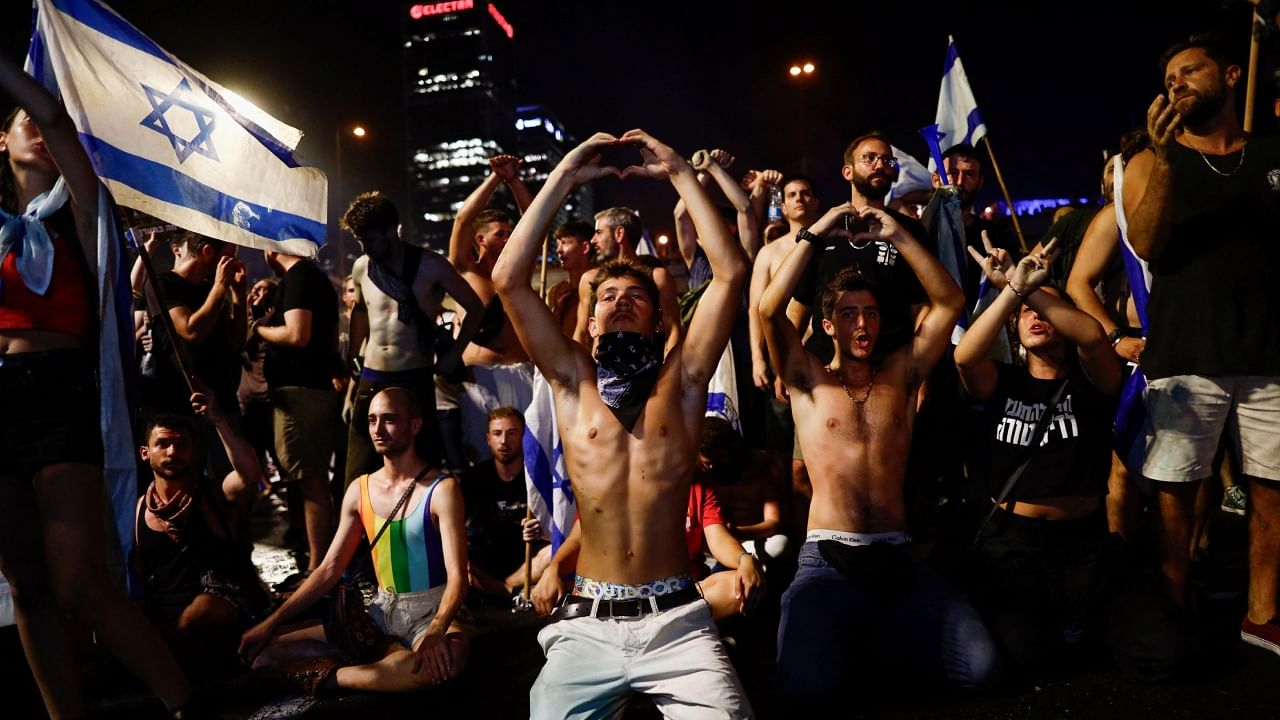
Israeli doctors began a 24-hour strike and black ads covered newspaper front pages on Tuesday in a furore over the hard-right government's ratification of initial judicial changes that critics fear will endanger independence of the courts.
A first bill curbing Supreme Court review of some government decisions passed in a stormy Knesset parliament on Monday after a walkout by lawmakers who say long-serving Prime Minister Benjamin Netanyahu is pushing Israel towards autocracy.
With demonstrations convulsing Israel for months, thousands took to the streets and scuffled with police on Monday night. Traditional ally the United States called the vote "unfortunate".
"A Black Day for Israeli Democracy," said an ad on the front of major newspapers placed by a group describing itself as worried hi-tech workers.
Protest leaders said growing numbers of military reservists would no longer report for duty.
But opposition leader Yair Lapid asked them to hold off on that threat, which has shaken Israel's sense of national security, pending any Supreme Court ruling on an appeal by a political watchdog group to void the law.
The Israel Medical Association ordered doctors to strike.
It cited the removal of the Supreme Court's ability to overrule, on the basis of "unreasonableness," potential government involvement in decisions by Health Ministry staff.
The 24-hour strike would not apply in Jerusalem, scene of escalating confrontations, it said. The government was seeking an injunction compelling doctors to return to work.
Netanyahu's crisis
First elected to top office in 1996 and now in his sixth term, Netanyahu, 73, is facing his biggest domestic crisis.
Casting the reforms as a redressing of balance among branches of government, he sought to calm the opposition - as well as Israel's Western allies - by saying on Monday he hoped to achieve consensus on any further legislation by November.
Complicating Netanyahu's position is a corruption trial in which he denies wrongdoing, and his weekend hospitalisation to receive a pacemaker. His religious-nationalist coalition's expansion of settlements on occupied land where Palestinians seek statehood has also weighed on relations with Washington.
In fresh violence, Israeli troops killed three Palestinian militants who opened fire on them from a car near the West Bank city of Nablus on Tuesday, Israel's defence minister said.
Dogged by foreign investor flight, a swooning shekel and a threatened general strike by the Histadrut public sector union, Finance Minister Bezalel Smotrich told Army Radio: "The attempted casting of this as the end of democracy is simply false."
He brushed off opposition charges that Netanyahu, freed of Supreme Court intervention, would fire an attorney-general whom some ministers have described as recalcitrant on the reforms.
The military, Smotrich added, "is combat-ready and will remain combat-ready" despite the protesting reservists, whom he accused of trying to "put a gun to the head of the government"